2022年4月下刊
Social Media Makes Stupid;Cafe for writers on a ddl;威權政治弱點;電影;勞動國際公約;Daily steps;Inflation;Pandemic kids social skill;上海,團長;人睇書,我睇睇書嘅人;女權主義;女足;Simpsons;集體冷漠;Profits and pandemic;盛世下嘅控制;四月之聲。
- Social Media Makes Stupid

放喺第一篇嘅,一般都係自己覺得比較好嘅文章,同時呢篇比較長,係分析社交媒體點樣令到社會變得咁撕裂同愚蠢,讓民主變得冇咁民主
Social scientists have identified at least three major forces that collectively bind together successful democracies: social capital (extensive social networks with high levels of trust), strong institutions, and shared stories. Social media has weakened all three.
Once social-media platforms had trained users to spend more time performing and less time connecting, the stage was set for the major transformation, which began in 2009: the intensification of viral dynamics.
一開始嘅社交媒體,係日常交流嘅延續:將原先同屋企人、朋友、戀人等嘅電話or短信轉移到喺社交媒體上嘅互動。但好快,開發咗like & share之後,同埋算法推薦排序之後,就慢慢變成post畀陌生人睇,想喺網上爆紅
Later research showed that posts that trigger emotions––especially anger at out-groups––are the most likely to be shared.
This new game encouraged dishonesty and mob dynamics: Users were guided not just by their true preferences but by their past experiences of reward and punishment, and their prediction of how others would react to each new action. One of the engineers at Twitter who had worked on the “Retweet” button later revealed that he regretted his contribution because it had made Twitter a nastier place. As he watched Twitter mobs forming through the use of the new tool, he thought to himself, “We might have just handed a 4-year-old a loaded weapon.”
既然想爆紅,噉乜嘢最容易紅?係嗰啲帶有情緒化嘅,特別係憤怒嘅動態。呢啲前人其實到已經充分認識到,比如喺美國建國制定憲法時:
It was just this kind of twitchy and explosive spread of anger that James Madison had tried to protect us from as he was drafting the U.S. Constitution. The Framers of the Constitution were excellent social psychologists. They knew that democracy had an Achilles’ heel because it depended on the collective judgment of the people, and democratic communities are subject to “the turbulency and weakness of unruly passions.” The key to designing a sustainable republic, therefore, was to build in mechanisms to slow things down, cool passions, require compromise, and give leaders some insulation from the mania of the moment while still holding them accountable to the people periodically, on Election Day.
Many authors quote his comments in “Federalist No. 10” on the innate human proclivity toward “faction,” by which he meant our tendency to divide ourselves into teams or parties that are so inflamed with “mutual animosity” that they are “much more disposed to vex and oppress each other than to cooperate for their common good.”
But that essay continues on to a less quoted yet equally important insight, about democracy’s vulnerability to triviality. Madison notes that people are so prone to factionalism that “where no substantial occasion presents itself, the most frivolous and fanciful distinctions have been sufficient to kindle their unfriendly passions and excite their most violent conflicts.”
Social media has both magnified and weaponized the frivolous.
可以話呢個係人類嘅本性所決定嘅,難以避免,但社交媒體嘅誕生同進化太快,令到法律冇辦法及時地更新,毫無管制下迅速發展成而家噉樣,而最大嘅問題唔單止係佢令到偏激、反智同攻擊性嘅言論氾濫,更削減信任度(社會信任真係好重要,對民主政治、國民幸福度等都好大影響:
It’s not just the waste of time and scarce attention that matters; it’s the continual chipping-away of trust. An autocracy can deploy propaganda or use fear to motivate the behaviors it desires, but a democracy depends on widely internalized acceptance of the legitimacy of rules, norms, and institutions. Blind and irrevocable trust in any particular individual or organization is never warranted. But when citizens lose trust in elected leaders, health authorities, the courts, the police, universities, and the integrity of elections, then every decision becomes contested; every election becomes a life-and-death struggle to save the country from the other side.
Recent academic studies suggest that social media is indeed corrosive to trust in governments, news media, and people and institutions in general. A working paper that offers the most comprehensive review of the research, led by the social scientists Philipp Lorenz-Spreen and Lisa Oswald, concludes that “the large majority of reported associations between digital media use and trust appear to be detrimental for democracy.” The literature is complex—some studies show benefits, particularly in less developed democracies—but the review found that, on balance, social media amplifies political polarization; foments populism, especially right-wing populism; and is associated with the spread of misinformation.
社交媒體嘅出現,將人羣變得更加分散:以前係唔同派嘅人睇同樣嘅報紙分享同樣嘅資訊同觀念,但而家呢,有咗網絡,有好多唔同嘅資訊(真實or偽造嘅)廣泛流傳,即使係同一陣營嘅人都好可能會對同一個資訊有唔同嘅意見
I think we can date the fall of the tower to the years between 2011 (Gurri’s focal year of “nihilistic” protests) and 2015, a year marked by the “great awokening” on the left and the ascendancy of Donald Trump on the right. Trump did not destroy the tower; he merely exploited its fall. He was the first politician to master the new dynamics of the post-Babel era, in which outrage is the key to virality, stage performance crushes competence, Twitter can overpower all the newspapers in the country, and stories cannot be shared (or at least trusted) across more than a few adjacent fragments—so truth cannot achieve widespread adherence.
如果有交流嘅話,其實都係可以克服呢啲困難嘅,but,我諗大家都唔會覺得同唔同意見嘅人喺網絡上互懟係一種交流方式,但真正可行嘅交流好容易就會被呢啲嘢覆蓋同轉移
What changed in the 2010s? Let’s revisit that Twitter engineer’s metaphor of handing a loaded gun to a 4-year-old. A mean tweet doesn’t kill anyone; it is an attempt to shame or punish someone publicly while broadcasting one’s own virtue, brilliance, or tribal loyalties. It’s more a dart than a bullet, causing pain but no fatalities. Even so, from 2009 to 2012, Facebook and Twitter passed out roughly 1 billion dart guns globally. We’ve been shooting one another ever since.
First, the dart guns of social media give more power to trolls and provocateurs while silencing good citizens.
Second, the dart guns of social media give more power and voice to the political extremes while reducing the power and voice of the moderate majority.
Finally, by giving everyone a dart gun, social media deputizes everyone to administer justice with no due process.
呢個都係點解要一直強調,網絡上嘅聲音係極度唔平衡,放大化咗嗰啲失智同攻擊性嘅言論。而造成嘅結果就係失控,極度撕裂同唔信任
The most reliable cure for confirmation bias is interaction with people who don’t share your beliefs. They confront you with counterevidence and counterargument. John Stuart Mill said, “He who knows only his own side of the case, knows little of that,” and he urged us to seek out conflicting views “from persons who actually believe them.” People who think differently and are willing to speak up if they disagree with you make you smarter, almost as if they are extensions of your own brain. People who try to silence or intimidate their critics make themselves stupider, almost as if they are shooting darts into their own brain.
always the same,除此之外別無他法。永遠都係要交流先可以減少一啲認知偏差甚至錯誤。但可怕嘅就係冇一人可以倖免,無論左右,無論政黨,都深陷於此:一係反智暴力,一係扼殺異議。最後充斥晒嗰啲聲音,而理性明智嘅聲音只能被迫沉默
American politics is getting ever more ridiculous and dysfunctional not because Americans are getting less intelligent. The problem is structural. Thanks to enhanced-virality social media, dissent is punished within many of our institutions, which means that bad ideas get elevated into official policy.
更加恐怖嘅就係,呢啲破壞力極強嘅聲音喺未來甚至而家都可能已經有,係由AI批量生成,機器人帳號大家應該都見得多,如果喺社交媒體玩得多嘅話。
then, how to change?
What changes are needed? Redesigning democracy for the digital age is far beyond my abilities, but I can suggest three categories of reforms––three goals that must be achieved if democracy is to remain viable in the post-Babel era. We must harden democratic institutions so that they can withstand chronic anger and mistrust, reform social media so that it becomes less socially corrosive, and better prepare the next generation for democratic citizenship in this new age.
而且係有希望嘅,好多人已經意識到,且利用已有嘅社團組織係可以改變
Most Americans in the More in Common report are members of the “exhausted majority,” which is tired of the fighting and is willing to listen to the other side and compromise. Most Americans now see that social media is having a negative impact on the country, and are becoming more aware of its damaging effects on children.
When Tocqueville toured the United States in the 1830s, he was impressed by the American habit of forming voluntary associations to fix local problems, rather than waiting for kings or nobles to act, as Europeans would do. That habit is still with us today. In recent years, Americans have started hundreds of groups and organizations dedicated to building trust and friendship across the political divide, including BridgeUSA, Braver Angels (on whose board I serve), and many others listed at BridgeAlliance.us. We cannot expect Congress and the tech companies to save us. We must change ourselves and our communities.
離唔開個體嘅努力,所以即使呢邊前景更加暗淡,都係要喺附近嘅社區社羣開始改變,最基本嘅,就係從同返身邊嘅人多啲交流
- Cafe for writers on a ddl

好得意,喺東京嘅呢間咖啡店,催稿地方hhh
而且都唔貴,一個鐘300日元約十幾蚊人民幣,適合嗰啲想趕稿但動力唔係好夠嘅作家
- 威權政治弱點
China and Russia Are Giving Authoritarianism a Bad Name by THOMAS L. FRIEDMAN
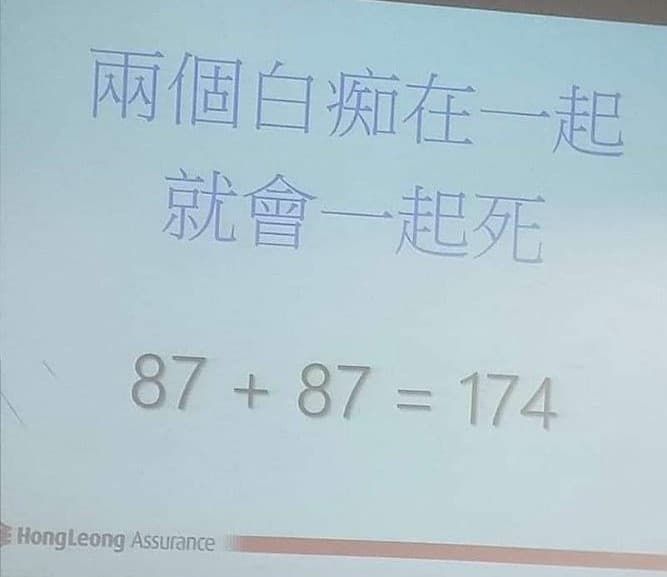
當然喇,張圖只係為用而用,文章入邊冇點講到兩者互相支持嘅內容
Dr. David L. Katz, a U.S. public health and preventive medicine expert who wrote one of the most prescient early guest essays in this newspaper about managing Covid at the onset, explained to me that the problem with having the kind of draconian lockdown policy that China maintained is that you are guaranteeing that your population develops little native immunity from having acquired and survived the virus. So, Katz said, if the virus mutates globally, as it did with Omicron, and you have “a less than effective vaccine, virtually no natural immunity in the population, and millions of elderly unvaccinated, you’re in a bad place and there is no easy way out.”
致命弱點……就係唔要國外更有效嘅疫苗,結果,到咗冇辦法控制嘅地步。。
The moral of this story? High-coercion authoritarian systems are low-information systems — so they often drive blind more than they realize. And even when the truth filters up, or reality in the form of a more powerful foe or Mother Nature slams them in the face so hard it can’t be ignored, their leaders find it hard to change course because their claims to the right to be presidents-for-life rest on their claims to infallibility. And that is why Russia and China are both now struggling.
I am worried sick about our own democratic system. But as long as we can still vote out incompetent leaders and maintain information ecosystems that will expose systemic lying and defy censorship, we can adapt in an age of rapid change — and that is the single most important competitive advantage a country can have today.
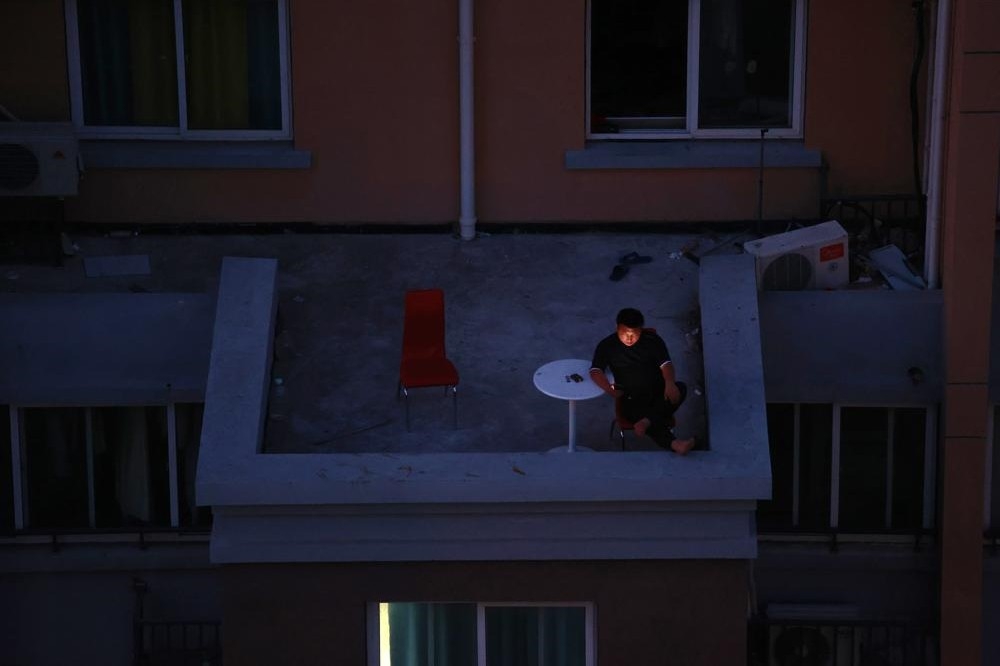
「殺死那個XX人」,諗唔到時間真係過得好快
大生刘蟾:上海疫情带给我们的十二条启示(已404
淺顯易明,可惜無可避免會睇到諧音詞「政府」,實在可惜又無奈。其實從乜嘢開始,都係一種自救;呢個都係最優先要做嘅嘢;之後就救一個算一個,難係難咗啲,但都會係有用嘅
and have to say起碼喺微博都仲睇到,喺微信公眾號發嘅就已經刪咗……
shit。。週六仲可以睇,週日就冇咗。。好在有先見之明整咗archive。睇嚟所有嘅樂觀都只係暫時嘅,始終要被封。。

大生刘蟾:上海疫情带给我们的十二条启示
- 電影
影院经理们在焦虑中等待救市强片的到来,超级英雄大片《新蝙蝠侠》被寄予最大的期待。然而,3月18日首映日这天,与《新蝙蝠侠》同时到来的,还有《国家电影局关于从严抓好电影院疫情防控工作的通知》。中高风险地区电影院一律暂不开放,可是一些并未出现确诊病例的城市,也主动关闭了影院。有观众电影看到一半,被通知立刻清场关门。最终,虽然电影口碑不错,票房却遭遇滑铁卢,八天后才艰难破亿。当然,这部电影的暗黑文艺气质,决定了其不可能成为超级爆款,但这样的票房着实难以匹配“超英片”的身份。
电影产业陷入了一个尴尬的循环:观众觉得影院没那么多好电影,所以不愿意去影院,导致上座率低、票房低迷;片方看到票房低迷,不愿意投钱拍大片,就更没有足够的优质片源。在这种情况下,就出现了片荒。
从票房数据看,档期其实比以往更重要了——去年,元旦、春节、清明、五一、国庆均收获同档期史上最高票房。这意味着,看电影更加具有节庆活动的色彩,而日常观影动力不足,这也是电影市场不成熟度的体现。
观影意愿下降、优质影片断档、非档期市场低迷、进口大片缺失……种种现象,说明电影业尚未走出疫情阴影,甚至预示着更为伤筋动骨的变化。如果稍微往前追溯,这种变化实际上是2018年以来行业大调整的持续。
講真,又貴又唔好睇,不如睇流媒體,起碼可以睇自己中意嘅類型。而疫情嘅粗暴管理就唔多講了,都唔知仲會影響幾耐
- 勞動國際公約

wow,就睇標題以為呢個係中國嘅又一重視勞工嘅體現。其實就係太好笑,一個以工人農民發家嘅國家,而家先簽幾十年前嘅國際公約。一定唔係因為要簽中歐經濟協議嘅妥協,一定唔係!
- Daily steps

科學研究證明,多啲行路對身體好。日均行七千步,就可以降低差唔多50%嘅死亡風險!(對年輕人(<60歲),就九千步),而且呢個標準唔係硬性嘅,只要有行多,都會一定程度降低風險

睇嚟以後中午曬太陽嘅時候咪坐咁耐,行多啲喇
- Inflation

interesting,可以講係一種自我實現:預期會繼續通貨膨脹,就會刺激工資同商品價格嘅上漲,從而繼續會通貨膨脹……相當於從原來導致通貨膨脹嘅因素(供應鏈不足、求過於供、戰爭等等)轉嫁到人嘅勞動成本上
- warnings kill

Hall and Madsen propose that the running total of traffic deaths increases anxiety and therefore cognitive load, robbing drivers of the mental bandwidth they need to pay attention and drive safely.
呢種自我實現就更加地攞命,冇人會中意。或者單純講前方路況(有比較大嘅轉彎or路滑)會好啲
疫情的而且確改變咗好多嘢,學科上嘅落後唔提,學生嘅生活技能同社交能力都降低咗。所幸,方案總比問題多,富有創作力嘅學校教師正在用各種辦法嚟解決。不能不提嘅係將大啲同比較細嘅小朋友放喺一齊閲讀交流嘅辦法,that's really nice
- 上海,團長


引用在瓦爾登湖畔讀書嘅評論
文章分享了不少经验。
1,善用工具:从腾讯文档到问卷星
刚开始单不多用腾讯文档,随着团长人数增加,发现效率很低。
曾我们一度用快团团这个小程序,但快团团会产生1%手续费,每天资金转出来也有限额。
最后用了问卷星,问卷星随时可以预订,我们拉清单更清晰,对团长信息也是一个保护。
2,资源和调度。主要问题还是运力和人力缺失。这需要团长们理解并且有能力对接沟通到居民谅解。
3,95%以上的团长是女性。
这让我想起Bullshit Jobs里讲的五大类狗屁工作:帮闲(flunky)、打手(goon)、补漏人(duct taper)、打勾人(box ticker)和任务大师(taskmaster)。补漏人的工作,就是那种负责解决本来不该存在的问题的工作。大体上就是女人在做,她们拿真实的防水胶布,把现实中就是组不起来的东西固定在一块儿。
1和2做得再好,也是一件不该存在的狗屁工作,把正常人的时间和能力全都浪费在找食上。
黐線,離晒譜,真令人懷疑佢哋究竟仲要唔要面嘅。倒賣一早知,但做到噉嘅程度,大發疫症財,遠遠超出我嘅想象……爛到唔知仲可以點比爛。不過,只有我哋諗唔到,冇佢爛唔到嘅地步。而且就算係噉又點,係冇人有人做嘢嘅喎。住喺噉嘅國度真係幸福死
- 人睇書,我睇睇書嘅人
換個輕鬆啲嘅話題,好正,入邊特別中意嘅一張係成家六口人圍住一齊睇書嘅畫面,then feel sad that我屋企已經做唔到,或者可能以後可以?噢,應該話肯定得:一個人喺屋企睇書
每年4月,借着“世界读书日”的热点,与读书相关的话题就多了起来。其实对爱书的人而言,读书就像吃饭喝水般日常。读书有且只有一个原因,那就是喜欢。
在豆瓣话题广场的话题“看书的人”中,你能看到许多爱书人专注而忘我的灵魂。他们读书的样子,就是最有效的邀请——不管节日与否,一起把读书当作生活日常吧!
- 女權主義

唔出奇嘅,有官方、有體制喺後邊撐腰,你唔崛起邊個崛起?
本文並非意在批判梁鈺等人,筆者想指出的是,「粉紅女權」群體的出現恰恰是當下社會狀況的產物。 這意味著只有國家擁有定義「正當」與否的權力,留給民間的空間越來越小,體制外的聲音幾乎很難被聽見。 在越來越多的網絡「戰狼」主動出擊、動輒網絡暴力的情況下,民間的潰敗似乎也是一種必然。 這是當下中國女權主義的現狀,也是中國公民社會的現狀——衝擊體制的行動幾乎被封死,溫和的行動也必須要接受體制的檢視與介入;無論是誰都時刻活在被舉報的恐懼中,要不斷證明自己的「正確」立場。 這不僅是個人品質好壞/投機與否造成的結果,更是掌權者在沒有制約下,利用國家機器拉攏、打壓、恐嚇的結果。
只不過如果再噉發展落去,真正更加爭取權利同行動嘅女權消失於公眾時,噉就冇辦法再發展落去了(到時就好難有新嘅血液加入
一啲比較日常而有用嘅實踐
- 女足
都好唔容易,確實係應該要更多地關注。國足唔單止只有男足,仲有女足。
- Simpsons

We’re now at a point in history when generations of people have scarcely known a world without The Simpsons. “The first 10 seasons were a defining cultural phenomenon,” Sachs tells me. “Why was it so important? It was mainstream and subversive at the same time. It grew out of punk culture and represented a popular mistrust of government and police, and the corporations who control them. Because it was animated, it got away with murder. It could say and show things that were too violent, outrageous, or anarchistic for broadcast television. And it happened every week for a decade.”
“America has certainly turned into Springfield,” says Matt Selman, who is, along with Al Jean, the current showrunner. “I’m gonna generously say: Good people are easily misled. Terrifyingly easily misled. That’s always been in the DNA of the show, but now it’s in the DNA of America. It was a show about American groupthink, and how Americans are tricked—by advertising, by corporations, by religion, by all these other institutions that don’t have the best interests of people at heart.”
Groening says it was Brooks who told everyone to try to forget they were working on a cartoon altogether—to strive for emotional resonance rather than plain silliness. This is another reason why the show is, as Selman puts it, “the only thing from the ’90s that still exists.”
emotional resonance attracts more eyes.
This joke has been making me laugh for 25 years. I asked Meyer exactly why it’s so funny. “That’s a sterling example of Simpsons humor,” he says, “and I think what really puts it over the top is the last sentence. The punch line is really ‘You are a coward.’ But Marge’s response to the insult is perfectly in character, as she tries to deflect a preposterous curve-ball with logic. It’s her version of Rodney Dangerfield’s ‘No respect.’ ”
It might not be necessary, but Jean does tell me his idea of an ending for the series, if it ever comes to that. It would be a callback to the very first episode, which opens with the family attending a Christmas pageant at Springfield Elementary School. “It’s always been my idea that in the last episode,” he says, “we should return to the original Christmas pageant that they go to—so that the whole series is a continuous loop, so the cartoon has no beginning, no end, nobody ages, nobody learns anything. That’s what I would do.
“But,” he concludes, “I don’t think it’s going to end.”
hah, I like this possible ending.
出咗三十幾年嘅動畫片,儘管有好多亮眼嘅劇集,但始終無可避免做走向沒落,即使保持到原有嘅水準,但始終都係會厭棄,慢慢都少人睇了,不過經典始終都會係經典
- 集體冷漠
故事唯一的缺陷,是没有讲述社会为何会走向“集体冷漠”。
这个问题的答案,其实也不复杂。早在西汉时代,贾谊便通过总结秦人的历史教训告诉世人:绝大多数普通人的日常行为,主要是由笼罩他们的权力制度决定的。为了适应权力制度的运作,普通人会选择“最有利”的行为模式。如果这种权力制度本身是不义的,只追求控制与汲取,缺乏道德感与正义性,那么,其治下民众的行为模式也会缺乏道德感与正义性,整个社会的道德水准会急骤降低,整个社会将陷入一种“集体冷漠”的状态。在这种社会里,人们不再能够对他人具体的痛苦做出友善的、有道德的回应。社会的自我救济机制会全面崩溃,人们将摒弃人性,以一种僵化的态度去实施律法与规条,将这些律法与规条变成勒死社会的绳索。
遗憾的是,在现实生活中,冷漠型社会成型后便很难逆转,每个人都可能成为其中的加害者,也可能成为其中的受害者,人人都要不断地为冷漠付费直至破产。贾谊当然没有读过拉瓜迪亚或者塞缪尔·琼斯的故事,但他知道,靠向旁听席罚款,解决不了社会的道德溃败。
- Profits and pandemic

結論唔意外,workers再次被忽視,大部分嘅增長被股東同高層分走
Company shareholders grew $1.5 trillion richer, while workers got less than 2% of that benefit
The 22 companies spent five times more on dividends and stock buybacks than on all additional pay for workers. Diverting some, or all, of that shareholder cash would have allowed companies to increase wages significantly. The 16 companies that repurchased nearly $50 billion of their shares could have raised the annual pay of their median worker by an average of 40% if they had redirected that money to employees.
40%! Could you believe it? However, this do not happen.
Instead, building a more equitable model of capitalism will require a new balance of power between executives, shareholders, and other stakeholders, such as workers, government, and society at large. Rather than hoping companies will exercise their discretion to benefit workers, the U.S. needs laws, institutions, and policies that require, pressure, and incentivize them to do so.
Policy reforms are needed that span labor law, regulation of working conditions (including wages), corporate disclosure, corporate governance, and more. Specific recommendations include: better employer data for consumers, policymakers, and workers; labor law reform for workers to exercise their power; a raise in the minimum wage; and greater worker voice in corporate governance.
Let's see when and how to do it. The right of workers are available and waiting for fighting for.
- 盛世下嘅控制
從税收、思想、武裝、行為全方面管制,所以,其實係歷史悠久。。
老百姓通常对税率不甚敏感,有口饭吃就安安稳稳做顺民。最害怕的是两件事:一件是劳役。帮政府做事,动辄得咎,往往赔得倾家荡产,甚至死人也常有发生。另一件是官吏的腐败盘剥、中饱私囊,往往底层百姓所缴,高出数倍,还没有标准。
虽然多数专制帝王都将天下臣民视作可以随便收割的韭菜,他们实际上的收割力度也远胜于蒙元君王,他们还是会在收割关系面前罩上一层温情脉脉的薄纱。
普遍的心理恐惧之下,是自我禁抑、自我审查和自我删改。稍有敏感的话题,能不碰就不碰。出版物中可能涉及的「敏感词」,则用一套隐语系统替代,如用「汉」、「宋」指代「明」,以「秦」、「金」指代「清」。
清代对文化领域的压制产生「涟漪效应」,带来各种文化领域的萎缩、公共空间的萎缩、政治批评意识的萎缩、自我心灵的萎缩,形成一种万民退隐的心态、「非政治化」的心态。
政治干预文化领域,不只是积极改造人们怎么想,而且要人们朝着其方向想,或是要人们什么都不想。
清朝对人口流动非常警惕,特别是有宗教色彩的结社、聚集活动,和尚、乞丐、游商,都是重点防范的对象。他们这些下层外来人口被污名化,成为人们恐慌和恶意的发泄渠道。
在没有大数据和信息技术的年代,政府只能依赖基层和民间的力量,清剿可能存在的威胁。民间普遍仇外,一旦国家动员,他们就会努力抓住这些偶尔出现的机会,攫取自由漂浮的社会权力,迫害比自己更弱的人。
为监控官员,康熙皇帝发明了一套密折制度,允许部分信任的官员,绕过政府机关,将奏文直接送达皇帝御前,由皇帝亲自批答。雍正皇帝又设立军机处,完备密折制度。军机处按照皇帝的意愿处理密折,成为清朝掌握实际权力的机构。
熟悉中国历史的朋友都知道,这不过是又一次皇权绕过政府的设计,新的机构监督过去的腐败,新的机构又成了新的腐败源头。而在一次次的叠床架屋之中,君主专制、中央集权达到极致,也将风险积累到最大。最后,终于将两千多年的皇帝制度全部扫进历史的垃圾堆。
- 四月之聲


四月之声 Voice from Shanghai Lockdown

Sigh,睇到好多人接力轉發呢個視頻,温和而真實嘅情況都會被封殺(諗起呢首歌
一開始話唔封,正常生活但感染人數不斷增加;後尾話要封,大概封一個禮拜度,大家嗰陣仲未有乜嘢太大嘅不滿,畢竟喺大陸疫病都幾得人驚,好多人確實覺得要管制好。但冇諗到,一封就封到而家,好多人根本冇做好咁長嘅準備,而封城導致嘅資源調度同緊張問題非常嚴重,更唔好講一班吸血嘅無恥企業官員搞「保供」
以下組圖轉自網絡,唉,唔知講乜嘢好。極其唔正常嘅一個時代,家庭中嘅温柔要清零
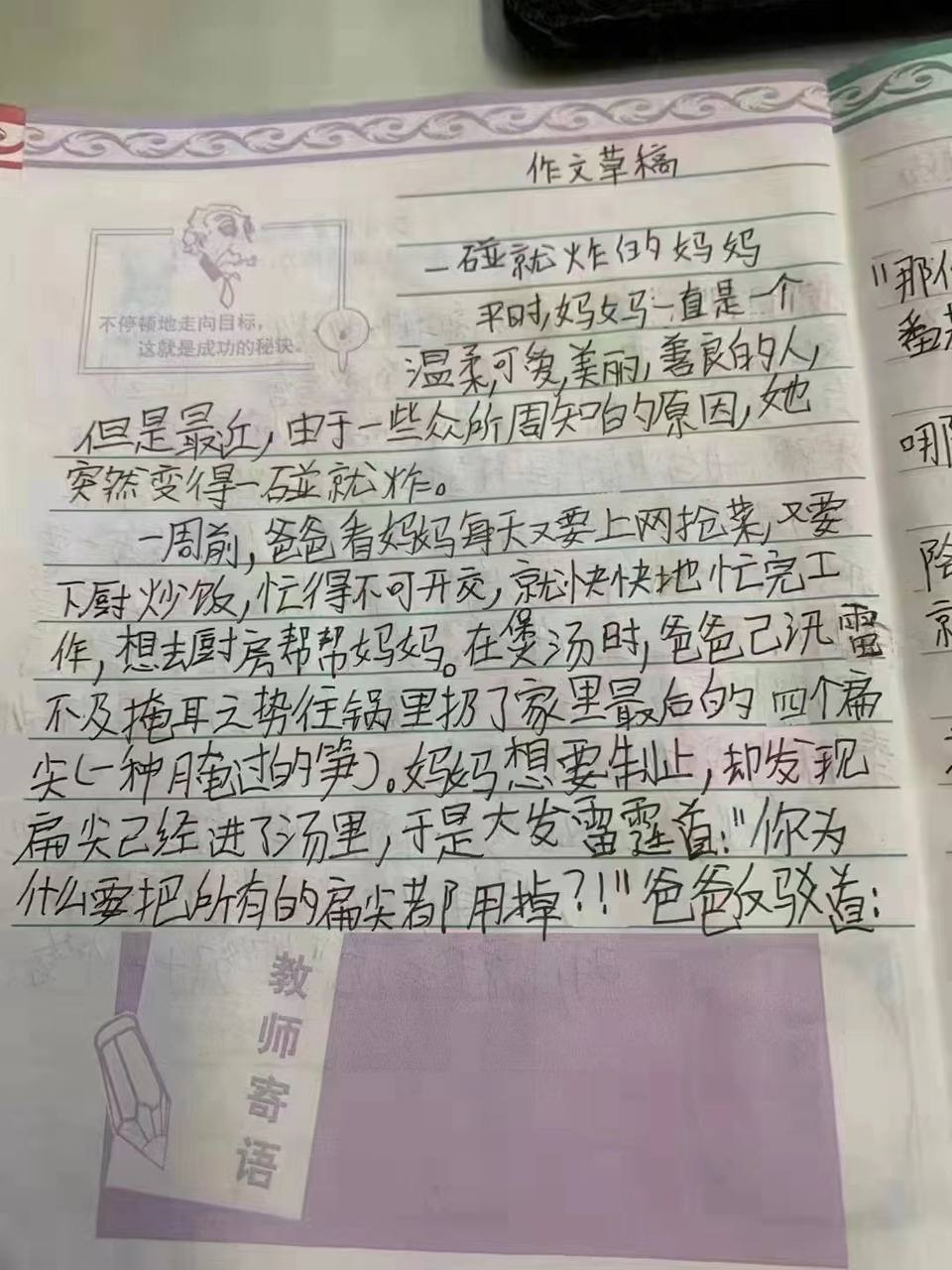
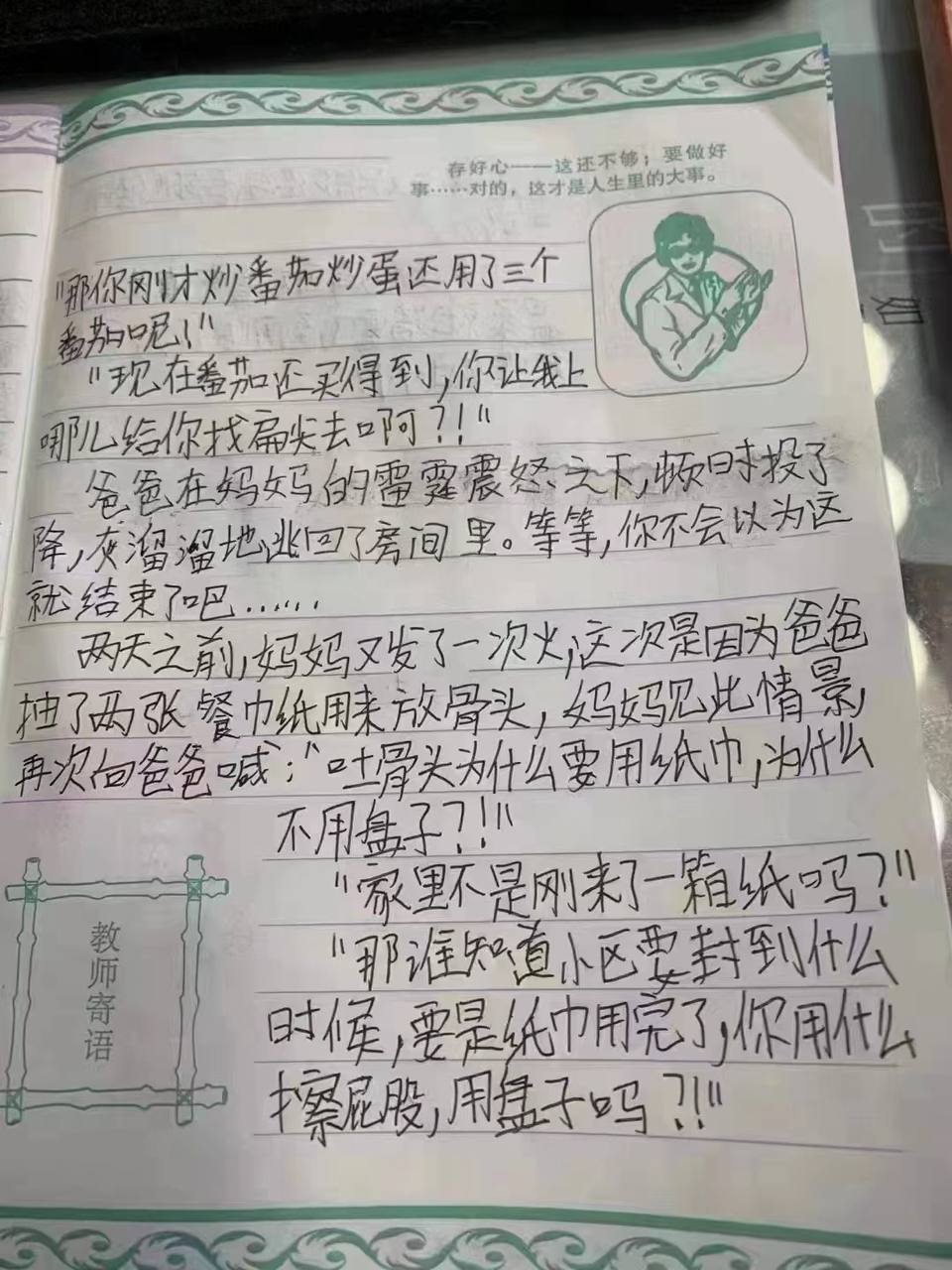
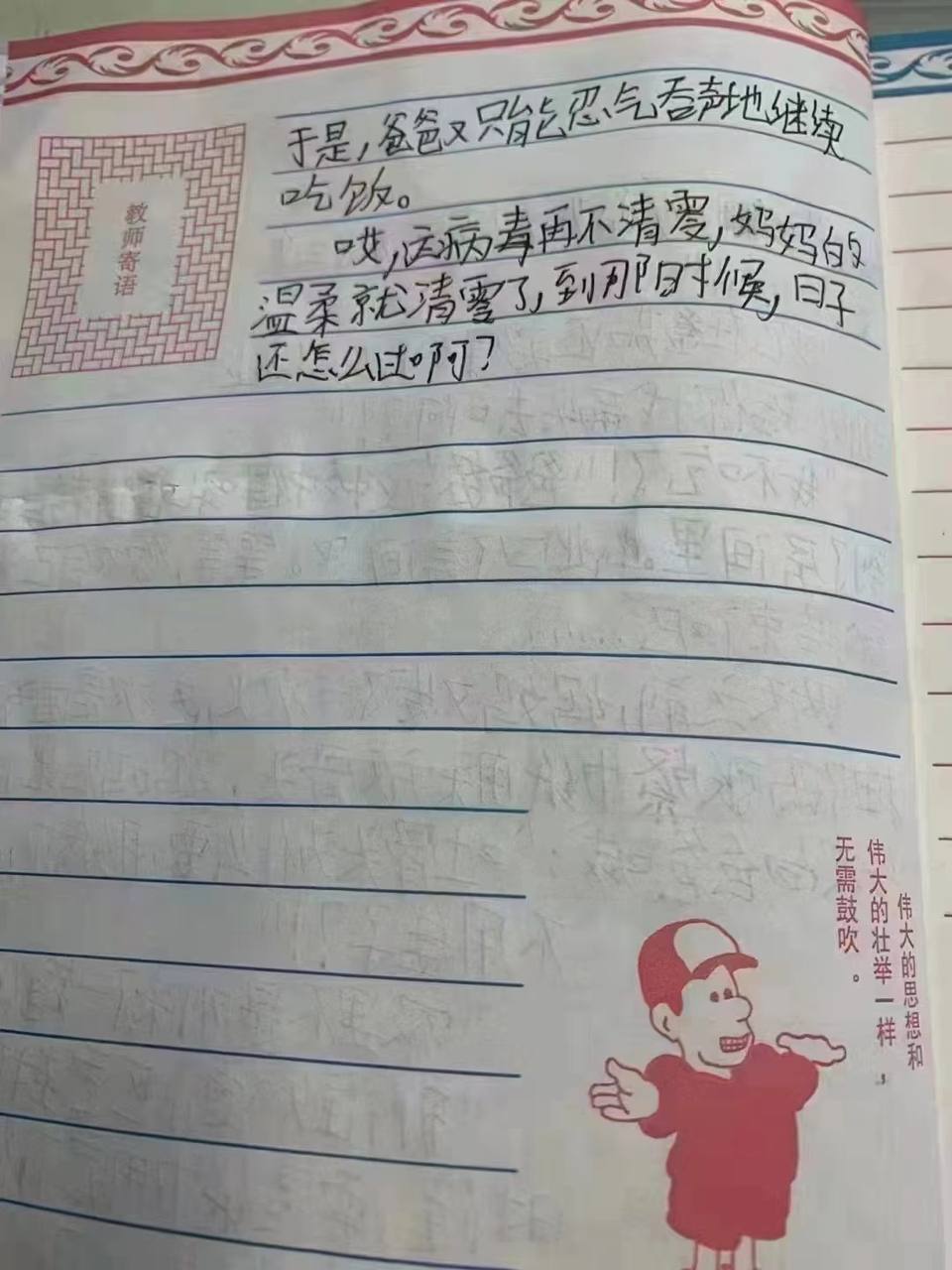













評論留言区